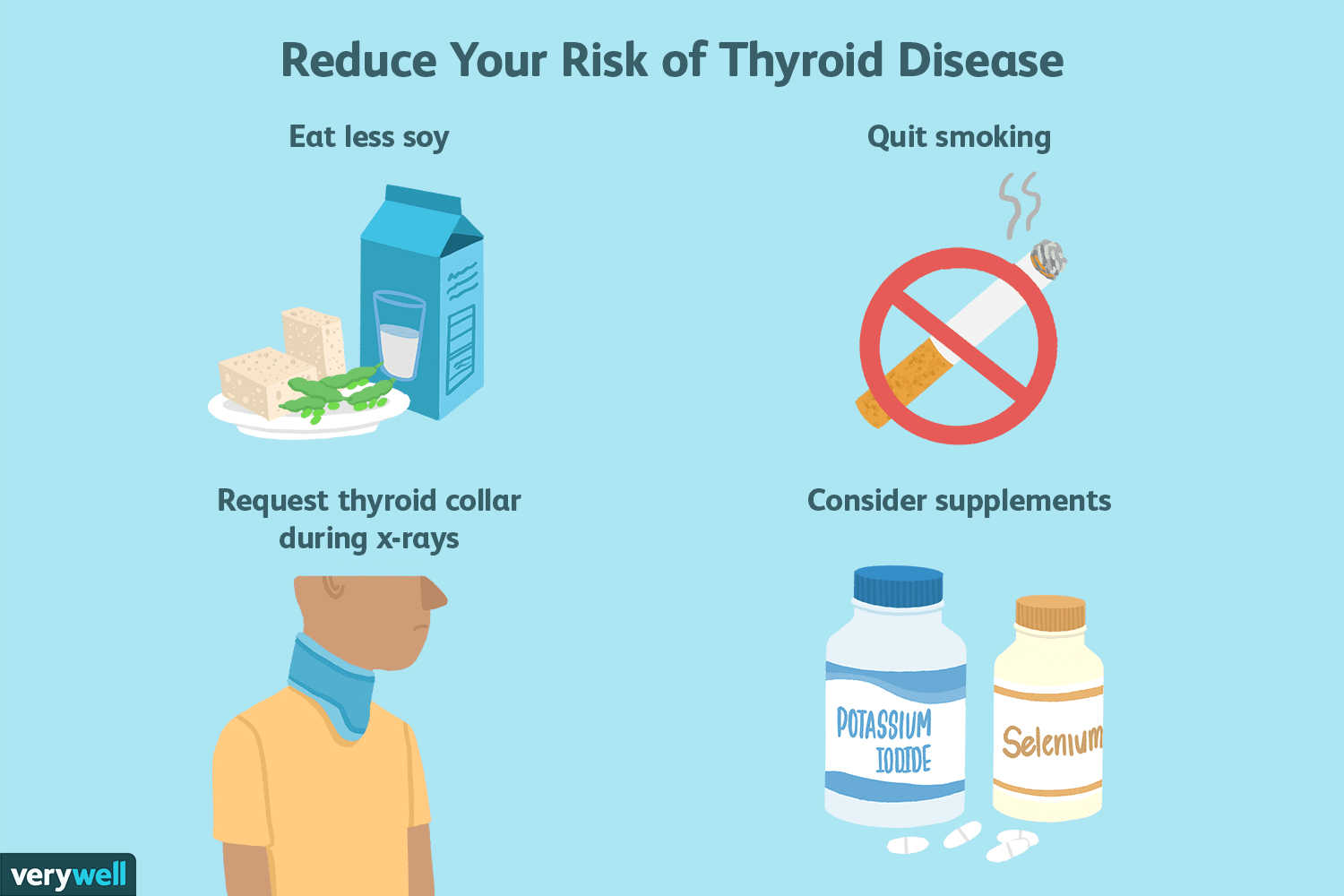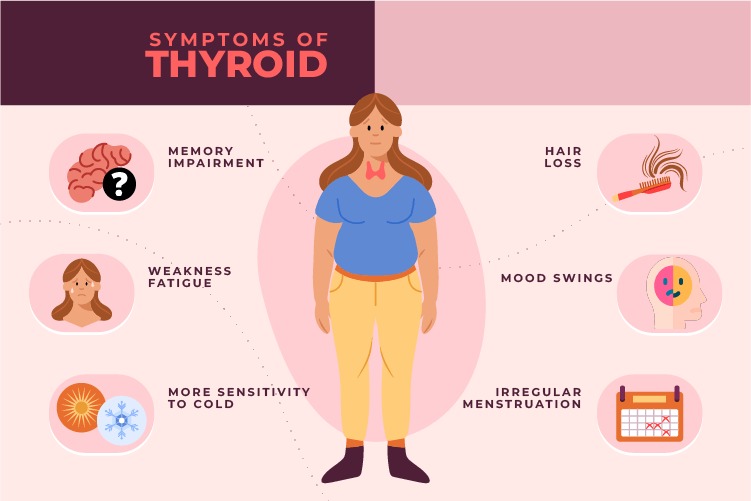Have you ever thought about how much your thyroid affects your overall health? This small butterfly-shaped gland in your neck plays a massive role in regulating your metabolism, energy levels, and even mood. The importance of keeping it functioning well cannot be overstated. But the question is, how can you prevent thyroid disease?

This image is property of www.verywellhealth.com.
Understanding Thyroid Disease
What Is Thyroid Disease?
Thyroid disease refers to a range of conditions that affect the thyroid gland, including hypothyroidism (an underactive thyroid) and hyperthyroidism (an overactive thyroid). Both conditions can bring about a variety of symptoms and complications if left untreated.
How Common Is Thyroid Disease?
Thyroid disease affects millions of people globally. It’s particularly common in women, especially those over the age of 60. Knowing the prevalence can help you take preventive measures before any issues arise.
Symptoms to Watch For
Being aware of the signs and symptoms that may indicate a thyroid problem is crucial. They can vary greatly depending on whether your thyroid is underactive or overactive. Here’s a quick look:
| Condition | Symptoms |
|---|---|
| Hypothyroidism | Fatigue, weight gain, depression, cold intolerance, dry skin |
| Hyperthyroidism | Weight loss, anxiety, increased appetite, heat intolerance, tremors |
If you recognize any of these symptoms in yourself, it’s worth consulting a healthcare professional for further evaluation.
Risk Factors for Thyroid Disease
What Factors Increase Your Risk?
Understanding the risk factors can empower you to make proactive choices. Here are some key risk factors for developing thyroid disease:
- Family History: If other family members have had thyroid issues, your risk increases.
- Age and Gender: As mentioned, women, especially over 60, are at higher risk.
- Autoimmune Conditions: If you have autoimmune diseases, such as lupus or rheumatoid arthritis, you may be more susceptible to thyroid disease.
- Diet and Nutritional Factors: Deficiencies in iodine, selenium, and other nutrients play a significant role in thyroid health.
How Can You Assess Your Risk?
Self-awareness is crucial. Consider your family history and lifestyle choices. If multiple risk factors apply to you, it might be a good time to take preemptive action.
Nutritional Strategies for Thyroid Health
The Role of Iodine
Iodine is essential for producing thyroid hormones. A deficiency can lead to hypothyroidism and even goiter. You can incorporate iodine-rich foods like seafood, dairy products, and iodized salt into your diet.
Selenium and Zinc
Both selenium and zinc are critical for maintaining healthy thyroid function. Foods such as Brazil nuts, sunflower seeds, and legumes can help you meet your selenium needs, while zinc can be found in shellfish, meat, and dairy products.
The Benefits of a Balanced Diet
A balanced diet can play a major role in preventing thyroid issues. Emphasize the following:
- Fruits and Vegetables: Rich in antioxidants that combat oxidative stress.
- Whole Grains: Great for digestion and provide essential nutrients.
- Healthy Fats: Avocados, nuts, and olive oil can reduce inflammation.
Here’s a little table summarizing these food groups:
| Nutrient | Food Sources |
|---|---|
| Iodine | Seafood, dairy, iodized salt |
| Selenium | Brazil nuts, sunflower seeds |
| Zinc | Shellfish, meat, dairy |
| Antioxidants | Berries, leafy greens |
| Whole Grains | Oats, quinoa, brown rice |
| Healthy Fats | Avocado, nuts, olive oil |
What to Avoid
Certain foods and substances can interfere with thyroid function. Be cautious with:
- Soy Products: They may disrupt hormone levels.
- Cruciferous Vegetables: Raw broccoli and kale can inhibit iodine absorption if consumed in excess.
- Gluten: In individuals with autoimmune thyroid conditions, gluten can trigger inflammation.
Lifestyle Factors in Thyroid Disease Prevention
Regular Exercise
Engaging in regular physical activity can work wonders for your thyroid health. Exercise stimulates hormone production and helps maintain a healthy weight. Aim for at least 150 minutes of moderate aerobic activity weekly and strength training exercises twice a week.
The Importance of Sleep
Sleep is often underrated, but it’s vital for your thyroid and overall health. Lack of sleep can lead to hormonal imbalances, including those affecting the thyroid. Aim for 7-9 hours of good-quality sleep each night to keep your hormones in check.
Stress Management
Chronic stress can wreak havoc on your thyroid. Incorporating stress-relief techniques like yoga, meditation, or deep-breathing exercises can foster a balanced hormonal environment. Understanding your stress triggers and finding healthy coping mechanisms is essential for maintaining your thyroid health.

This image is property of myhealth-redcliffelabs.redcliffelabs.com.
Regular Monitoring and Screenings
Why Regular Check-Ups Matter
Regular check-ups with your healthcare provider can help identify potential thyroid issues early. Blood tests, like TSH (Thyroid Stimulating Hormone) levels, could provide insights into your thyroid function.
When to Get Tested
If you have risk factors, such as a family history of thyroid disorders or autoimmune diseases, regular screenings are particularly crucial. Here is a simple guideline:
| Age Group | Recommended Testing Frequency |
|---|---|
| Adults 35 and up | Every 5 years |
| Individuals at high risk | Annually or as advised |
Understanding Your Thyroid Panel
If you do get tested, familiarize yourself with the basic thyroid panel results:
| Test | What It Measures | Normal Range |
|---|---|---|
| TSH | Thyroid Stimulating Hormone | 0.4 – 4.0 mIU/L |
| Free T4 | Thyroxine – Active Hormone | 0.8 – 1.8 ng/dL |
| Free T3 | Triiodothyronine – Active Hormone | 2.3 – 4.2 pg/mL |
It’s essential to understand these results in consultation with your healthcare provider to grasp what they mean for you.
Alternative Remedies and Approaches
Herbal Supplements
Some people find that certain herbal supplements can support thyroid health. However, always consult with your healthcare provider before adding new supplements to avoid adverse interactions.
Acupuncture and Holistic Approaches
Some studies suggest that acupuncture may help relieve symptoms of thyroid disease. Holistic approaches that consider the mind-body connection can also be beneficial, promoting overall well-being.
Vitamin D and Omega-3 Fatty Acids
Research indicates that vitamin D deficiency may be linked to thyroid dysfunction. Including vitamin D-rich foods like fatty fish, mushrooms, and fortified foods can be beneficial. Similarly, incorporating omega-3 fatty acids, found in fish oil and flaxseeds, may reduce inflammation and support thyroid function.

This image is property of lirp.cdn-website.com.
Building a Support System
The Power of Community
Consider seeking guidance or joining support groups focused on thyroid health. Connect with people who share similar experiences; they can offer incredible insights and encouragement.
Educating Yourself and Others
Educating yourself about thyroid health helps not only you but can also enable you to inform family and friends. Share useful information and resources that can foster a better understanding of the condition.
Taking Action: Your Personal Plan
Creating Your Tracking Journal
You might find it helpful to maintain a journal to track your diet, exercise, and any symptoms. Over time, this can give you valuable insights and allow you to identify triggers or patterns related to your thyroid health.
Setting Realistic Goals
Setting achievable wellness goals can help you stay focused. Whether it’s committing to a certain number of workouts a week or specific dietary changes, having clear goals is essential for feeling accomplished.
Seeking Professional Help
Lastly, if you believe you’re at risk for thyroid disease, don’t hesitate to consult healthcare professionals. A personalized approach is often the best path forward.

This image is property of kaigohomehealthcare.com.
Conclusion
Have you considered how seemingly simple lifestyle changes can significantly impact your thyroid health? By taking the time to understand your own body and making conscientious choices surrounding your diet, exercise, and stress management, you can effectively prevent thyroid disease. You have the power to influence your well-being positively. So go ahead and create your action plan today to ensure your thyroid—and overall health—remains in optimal condition. Your future self will thank you.